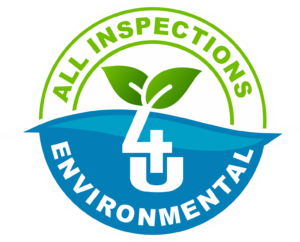Commercial Inspections

AVAILABLE SERVICE IN MIAMI, BROWARD & PALM BEACH COUNTIES
To understand the overall state of a commercial property, All Inspections 4U can help you with a professional inspection of the property. We inspect every major system, the roof, electrical systems, plumbing systems, insulation and ventilation, heating and air-conditioning systems, structure components, and air quality. We look at the condition of the property and look for safety or structural issues that might affect operation within the building you want to purchase or sell.
● OVER 1500 Inspections Completed. In 2019 All Inspections 4U completed over 125 full commercial inspections around the State of Florida.
● All Inspections 4U specializes in different types of properties and we conduct a variety of different inspections for our customers
– Commercial Realty Inspections
– Commercial Due Diligence Inspections
– Property Condition Assessments (PCA)
– Property Condition Reports (PCR)
– 40 Year Certifications and 10 Year follow-ups
– Thermal Inspections
– Restaurant Certifications & Inspections
– We also complete PCA’s, both as the primary inspector and as a subcontractor for Engineering Companies.
– Environmental Assessments and Special Evaluations for buildings
Performing Commercial Inspections
Who is doing commercial inspections now?
A huge, largely untouched commercial inspection market exists which is separate from the residential inspection market! Just Google “commercial building inspections,” and what you will find is a small number of inspection companies across North America who perform commercial inspections in addition to residential inspection. Look through their sites, and you will find that most approach commercial inspection the way they would a home inspection… the language they use is based on residential inspection… their websites look like those of residential home inspectors… and 95% of them have a “residential inspection” mindset.
What is the nature of this market?
Not only is this commercial market huge but, on average, commercial clients are less emotional and more reasonable to deal with, and they have deeper pockets. Compared to residential clients, what they require from an inspector are fewer babysitting skills and more professionalism. That is why the International Association of Certified Home Inspectors (InterNACHI), the world’s largest professional inspection organization, has developed the only comprehensive Commercial Standards of Practice in the inspection industry. “Standards” is a keyword. Nowadays, a professional inspector has access to wide-reaching Standards which act as guidelines in steering inspectors through the commercial inspection process.
How are commercial clients different from residential?
Who hires commercial inspectors, and why? As an inspector interested in performing commercial building inspections, you should understand just what it is that differentiates commercial property investors from residential. When inspecting commercial and industrial properties, your clients will consist of businessmen and women who, in their consideration of most properties, will follow an established procedure in evaluating properties. This procedure is much more defined than the comp/appraisal process used for residential transactions, although not necessarily simpler. As opposed to residential processes, foremost in the consideration of purchasing a commercial building are the continuity and stability of the stream of income it has generated in the past, and which it may generate in the future. Determining a building’s potential future income stream is complicated, and it involves examining many physical as well as business aspects of the building offered for sale. This process of examination is called “due diligence.” For commercial inspectors, “due diligence” is part of the service they provide to clients.
What is a commercial inspection?
Just as a land developer may hire a general contractor to oversee a variety of subcontractors who perform the construction work, a commercial investor often hires an inspector whose responsibilities typically involve overseeing a variety of subcontractors. These subcontractors provide specialty inspection reports on building systems, such as HVAC, electrical, roofing, structure, and whatever else is called for in the Client/Inspector Contract. Although the Standards are available and extremely useful, the goal of a commercial inspection is to provide the client with the information they need to enter into transaction negotiations with as much power in their possession as possible. In a negotiation, knowledge and documentation are power. Gathering this information is the process of due diligence and where commercial inspectors play a key role. The due diligence provided by commercial inspectors will vary, sometimes substantially, with the nature of the transaction. Variables may include building age, type, use and location. Although the client must make the final decision on what services will be supplied, the expertise of the inspector in providing advice and insight may be crucial. Background for providing this advice may require a preliminary inspection by the inspector, the inspector’s subcontractors and, sometimes, the building’s maintenance personnel.
Here are some of the many things a commercial property inspection should always include:
● Structural frame
● Roof surface
● HVAC system
● Plumbing system
● Electrical system
● Site characteristics, such as the landscaping and utilities
● Interior elements
● Fire protection
● ADA Compliance
Why a Commercial Building Inspection Matters?
If you’ve never had a commercial building inspection done before, you might be wondering why it matters. There are lots of benefits that come with having a building inspected, though, including the following:
1. Save Money
If you’re a buyer, having a building inspected before you purchase it can help you save a lot of money on repairs and maintenance. You can get those issues taken care of before you agree to buy the building, or you can use them as a negotiating chip to bring down the price.
2. Ensure Quality
Building inspections also ensure that the building is up to par before you make a purchase. They also give sellers a chance to take care of any issues they might not have been aware of before they put their property on the market.
3. Peace of Mind
An inspection also gives both the buyer and the seller peace of mind. They can both rest easy knowing that the building is in good shape and doesn’t have any major flaws.
What Happens During an Inspection?
A commercial building inspection is a pretty thorough process. You can expect an inspector to look closely at the following eight aspects of a building:
1. Structure and Grounds
During their inspection, inspectors will take a look at the exterior and grounds of the building. They’ll look for damage to the building or the surrounding area and make sure everything complies with local ordinances and regulations.
2. Interior Walls and Insulation
Inspectors will pay careful attention to the interior walls and insulation as well. They’ll check for cracks, signs of water damage, and signs of mold growth.
3. Windows and Doors
The windows are doors are very important during any building inspection. The inspector will check to make sure that all windows and doors open and close properly. They’ll check for cracks and other signs of damage, too.
4. Electrical Systems
To ensure that there aren’t any fire hazards in the building, the inspector will look at the switches, outlets, and circuit breakers. They’ll also check to make sure the inside and outside lights are working, as well as any security systems inside or outside of the building.
5. Plumbing
During the inspection, the inspector will also take note of any potential plumbing issues. They’ll make sure there aren’t any leaky pipes, and they’ll also ensure that the water pressure is appropriate in the building’s sinks and showers.
6. Fire Protection
Building inspectors take fire safety very seriously. They’ll want to test all of the fire alarms in the building to ensure they work properly. They’ll also want to test the sprinkler systems and any other pieces of fire safety equipment you may have in place.
7. Roof
It’s common for inspectors to climb on the roof or stand back from the building to take a look at it. During this part of the inspection, they’ll look for signs of water or wind damage, as well as cracks or missing shingles that need to be replaced.
8. HVAC Systems
The inspector will also want to ensure the HVAC system works correctly. They’ll take a look at the ducts, vents, and air filters to make sure they’re clean and free from debris. They’ll also check the function of all of the building’s thermostats.
3 REASONS TO CONSIDER A COMMERCIAL PROPERTY INSPECTION
If you are a business owner in South Florida, you may find yourself tempted to skip the commercial property inspection, to expedite your real estate transaction or as an incentive to sellers. However, our team at All Inspections 4U recommends that you always opt for a building inspection. We’ve put together a few reasons why.
1. Protect Your Investment
We understand how important your business is to you. After all, it’s your livelihood and it’s the livelihood of your employees. We also understand that your customers are depending on you to make sound financial decisions. That is why, when you are looking to purchase a commercial property, you need to make sure you are protected. A commercial property inspection is the perfect way to do just that.
2. Make an Informed Decision
Just like with any business decision, you don’t want to be second-guessing the property you have decided to purchase. That’s why it is important to gather as much information as you can about a property before you purchase it. That way, you can feel more confident as you move forward with that property. Or, you may find you need to search for another one that will better suit your business’ needs.
3. Be Knowledgeable
When negotiating a contract, a commercial property inspection can help you understand the property’s value and proceed accordingly. For example, if the building inspection reveals some property issues, you may be able to have the seller fix these items or use the issues as a negotiating point to lower the price.
A faster deal isn’t worth the potential headache of hidden building issues. You can save yourself time, money, and stress, by getting a commercial building inspection before you sign on the bottom line.
To schedule an inspection, call (954) 802-8524
Call (954) 802-8524
SCHEDULE AN INSPECTION TODAY


